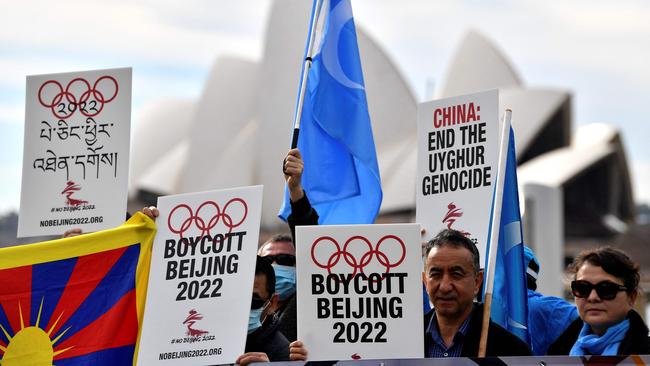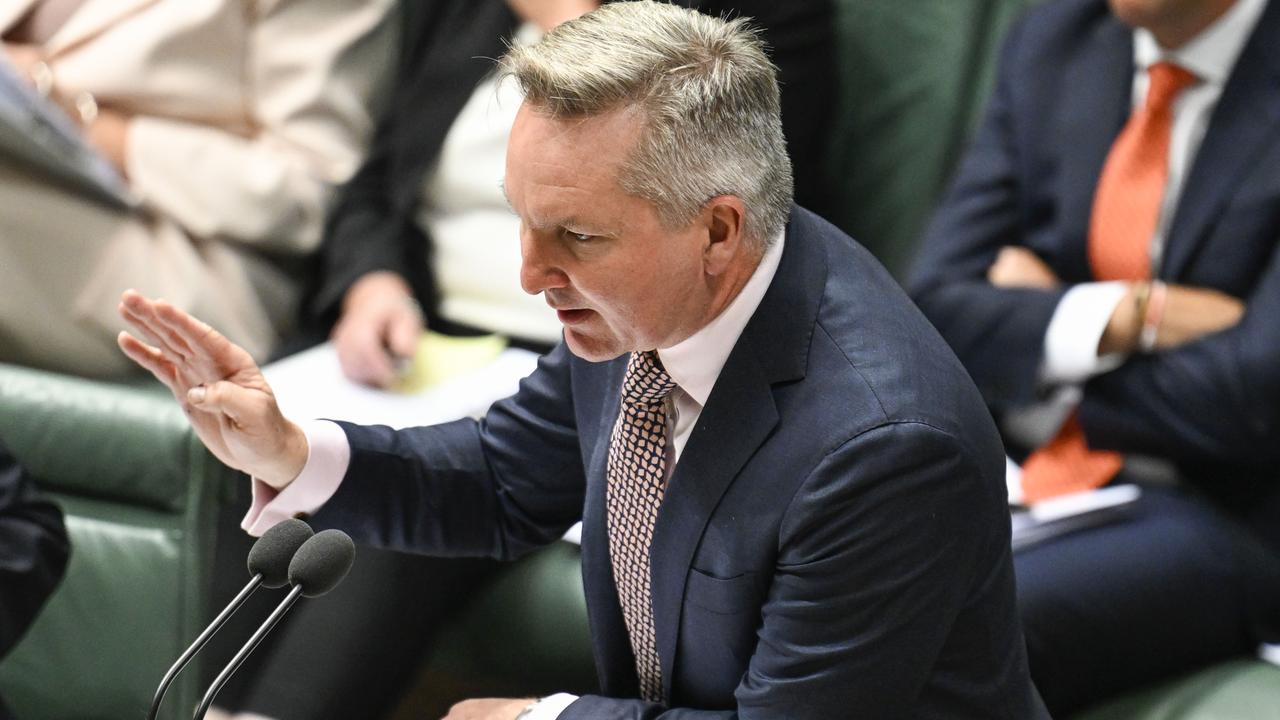
Should Australian officials and dignitaries travel with our athletes to Beijing in February for the Winter Olympics? Check the Department of Foreign Affairs and Trade’s Smartraveller site, which says “Australians may be at risk of arbitrary detention” and foreigners have been detained on spurious grounds of “endangering national security”.
Surely China’s Ministry of State Security wouldn’t detain people during the Games? Good luck if you think a sporting event will protect you. These are going to be the most staged-managed Olympics in history. Anyone who threatens to dent Beijing’s gloss will be at risk of rough handling.
Joe Biden has done the right thing to decide on a diplomatic boycott where the athletes participate but officials and politicians stay away. In the words of White House press secretary Jen Psaki, the Beijing Olympics “cannot be business as usual” because “standing up for human rights is in the DNA of Americans”.
Given the Chinese Communist Party’s systematic repression of millions of Uighurs, the crackdown in Hong Kong, arbitrary arrests including of two Australian citizens and the disappearance from public life of tennis star Peng Shuai, it’s surprising there hasn’t been a more concerted global effort to boycott the Olympics.
It is disappointing the Biden administration did not make more of an effort to build an international consensus for a boycott.
A co-ordinated international response would have pressured Beijing and perhaps succeeded in moderating the draconian restrictions China is putting on international press coverage of the Games. Now Beijing will redouble efforts to dissuade other countries from supporting a diplomatic boycott with threats of taking resolute countermeasures against “blatant political provocation and a serious affront to the 1.4 billion Chinese people”.
That said, the Australian government should agree to a similar diplomatic boycott and do nothing that adds lustre to Beijing’s political manipulation of the Games. For Xi Jinping there is only one audience that matters and that is the people of China who determine whether the CCP has sufficient legitimacy to sustain its hold on power.
Expect an Olympics unlike any in the post-war period. These Games will be engineered to present an image of China that, as Xi announced in July on the centenary of the CCP, “is one of a thriving nation that is advancing with unstoppable momentum toward rejuvenation”.
To support that goal, the international media largely will be kept away from the Games. Coverage will be tightly managed to avoid even the slightest blemish. Under the guise of Covid-19 management, international visitors will be mostly absent.
Chinese audiences will be hand-selected party loyalists. Xi will dominate the ceremonial moments, benignly presiding over tightly choreographed flag waving and applause. All that remains, as Xi has described, is that China wins medals: “Our young people should make it their mission to contribute to national rejuvenation and aspire to become more proud, confident, and assured in their identity as Chinese people.”
If ever there were a moment for the world’s athletes to take the knee in protest against the racism inherent in the CCP’s repression of Uighur and Turkic minorities in western China, it should be at these Games.
Of course, the International Olympic Committee presumably will cite rule 50 of the Olympic charter preventing athletes from taking part in “demonstration or political, religious or racial propaganda”. The IOC maintains that rule 50 is to “keep the field of play, the Olympic Village and the podium neutral and free from any form of political, religious or ethnic demonstrations”.
Except from the lighting of the torch in the Olympic stadium to the closing ceremony, the whole show will be designed, broadcast, written and spoken about, memorialised and propagandised as a triumph of the CCP’s will and of Xi’s leadership.
One thing that might penetrate the propaganda veil in ways ordinary Chinese people could see would be if athletes found ways to show subtly that they are there to celebrate sport, not be subsumed into a Communist Party disinformation campaign. My hope is athletes will take the knee or raise a fist or wear a black armband or look the other way when the flags are raised at medal ceremonies. In so doing they will be exercising the kinds of liberties Chinese citizens are not permitted to show but are well able to recognise. If enough athletes take this approach the IOC will hardly be able to sanction them all.
An interesting footnote is worth sharing. Peng’s allegation of sexual coercion was made against Zhang Gaoli, the most senior CCP figure to face such a public allegation. Zhang reached the rank of vice-premier and retired in 2018 after steering Olympics preparations for a couple of years. He has not been heard of since Peng’s online denunciation.
Zhang, it should be noted, was an acolyte of Jiang Zemin, a leader whose supporters Xi has assiduously purged since 2012. After the Olympics, watch what happens to Zhang. Xi could use this as a new catalyst for an anti-corruption purge of party positions. Xi is adept at turning others’ misfortunes to his own advantage.
Peter Jennings is executive director of the Australian Strategic Policy Institute and a former deputy secretary for strategy in the Department of Defence.



